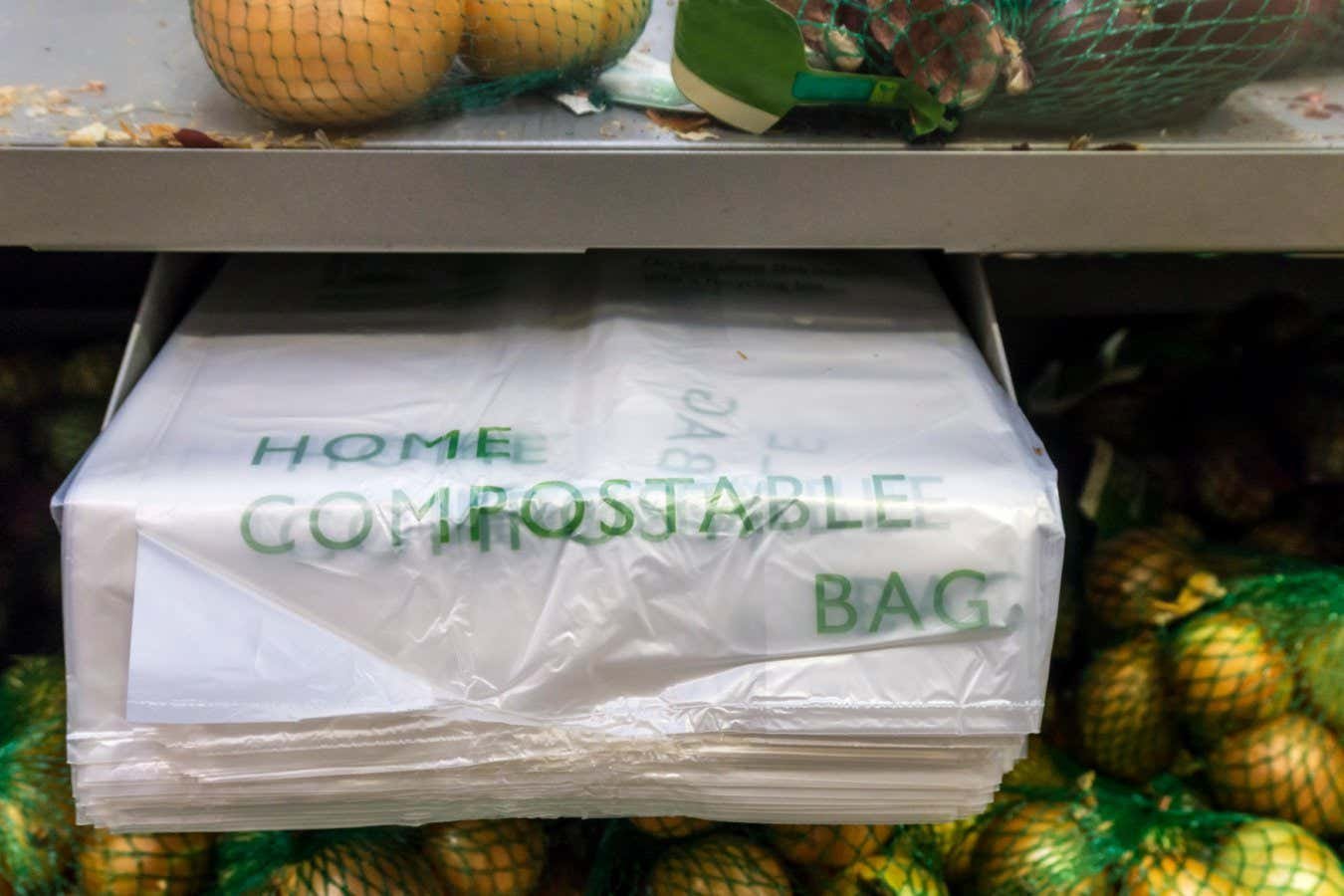
Some supermarkets now use biodegradable plastic bags
UrbanImages/Alamy
Biodegradable plastics that get broken down into microplastics appear to damage soil and affect plant growth more than conventional ones, at least over the short term.
Global plastic production reached 400 million tonnes in 2022, most of which isn’t recyclable. Large pieces of plastic that end up in the environment can be weathered into smaller and smaller pieces, until they sometimes aren’t visible.
To reduce pollution by these microplastics, some industries have turned to biodegradable plastics, known as bioplastics, but they may sometimes do more harm than good.

Felecia Phillips Ollie DD (h.c.) is the inspiring leader and founder of The Equality Network LLC (TEN). With a background in coaching, travel, and a career in news, Felecia brings a unique perspective to promoting diversity and inclusion. Holding a Bachelor’s Degree in English/Communications, she is passionate about creating a more inclusive future. From graduating from Mississippi Valley State University to leading initiatives like the Washington State Department of Ecology’s Equal Employment Opportunity Program, Felecia is dedicated to making a positive impact. Join her journey on our blog as she shares insights and leads the charge for equity through The Equality Network.




